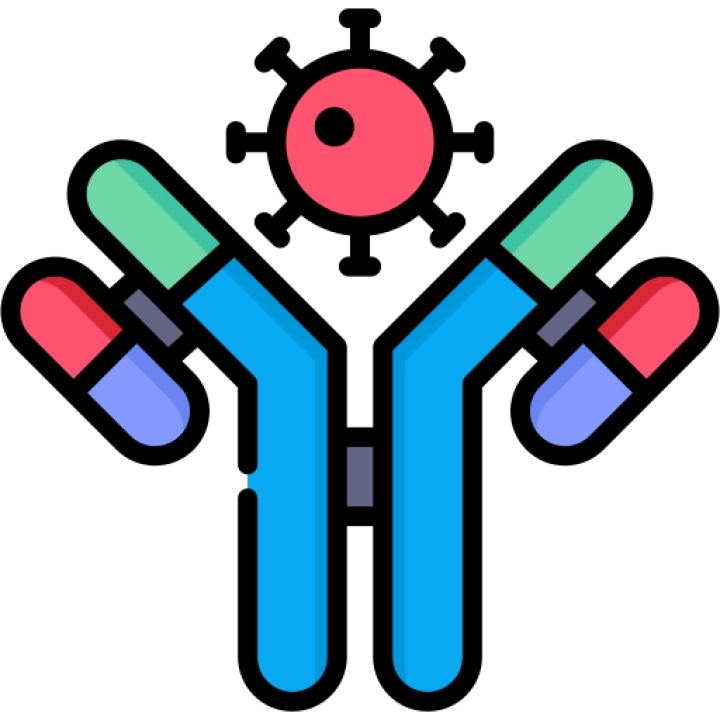Faculty: Graduate Programs Institute
This specialization focuses on the study of the immune system and its role in health and disease. Students explore key areas such as innate and adaptive immunity, immune disorders, vaccinology, and immunotherapy. The program emphasizes experimental and theoretical knowledge, research methodologies, and understanding clinical applications. Graduates are prepared for careers in medical research, pharmaceuticals, biotechnology, and healthcare.
Learning Objectives:
- Understand the fundamentals of immunology and the immune system.
- Develop skills in studying innate and adaptive immunity, immune disorders, and immunotherapies.
- Learn techniques for conducting immunological research and analyzing immune responses.
- Explore principles of vaccinology and vaccine development.
- Understand the role of immunology in diagnosis, treatment, and disease prevention.
- Analyze challenges and opportunities in immunological research and clinical applications.
- Develop teamwork and problem-solving skills for research projects and clinical settings.
Main Outline:
- Introduction to Immunology
- Overview of immunology, fundamental concepts, and historical context.
- Basics of the immune system, its components, and functions.
- Innate and Adaptive Immunity
- Principles of innate immunity, including physical barriers, phagocytosis, and inflammation.
- Principles of adaptive immunity, including humoral and cellular responses.
- Techniques for studying innate and adaptive immune responses.
- Immune Disorders
- Basics of immune disorders, including autoimmune diseases, allergies, and immunodeficiency.
- Techniques for diagnosing and managing immune disorders.
- Vaccinology
- Principles of vaccinology, including types of vaccines, mechanisms, and development.
- Techniques for designing, testing, and implementing vaccines.
- Immunotherapy
- Basics of immunotherapy, including passive and active immunotherapies.
- Techniques for developing and applying immunotherapies in clinical environments.
- Research Methods in Immunology
- Principles of research methods, including experimental design, data collection, and analysis.
- Techniques for conducting and evaluating immunological research.
- Clinical Applications of Immunology
- Exploring clinical applications of immunology in diagnostics and treatments.
- Techniques for applying immunological knowledge in clinical environments.
- Practical Training in Immunology
- Real-world research and clinical trials, including observations, internships, and practical projects.
- Techniques for applying acquired skills in practical immunological research environments.
- Capstone Project in Immunology
- A comprehensive project to apply acquired skills in innate and adaptive immunity, immune disorders, or immunotherapy.
- Techniques for delivering a polished and innovative immunological research project.
Assessment Methods:
- Reports on innate and adaptive immunity, immune disorder analyses, vaccine projects, immunotherapy plans, research methodology papers, clinical application studies, practical training reports, capstone projects, group projects, and internships.
Recommended Textbooks:
- "Janeway's Immunobiology" by Kenneth Murphy and Paul Travers.
- "Immunology: A Short Course" by Richard Coico and Geoffrey Sunshine.
- "Vaccinology: An Essential Guide" by Myron M. Levine et al.
- "Cancer Immunotherapy" by Mario Schnoll and Howard L. Kaufman.
- "Research Methods in Immunology" by various authors.
Prerequisites:
Basic knowledge of biology, chemistry, and medical sciences. Suitable for students interested in immunology, medical research, and healthcare.
Duration of Study:
Typically 4 years for a Bachelor's degree, including coursework, projects, practical training, and internships. Advanced degrees may take additional years.
Certification:
Graduates may earn a degree in immunology and pursue professional certifications in medical research, pharmaceuticals, or biotechnology.
Target Audience:
Aspiring immunologists, medical researchers, pharmacologists, biotechnology experts, and healthcare professionals seeking specialization in immunology. This specialization equips students with the experimental, theoretical, and practical skills necessary to excel in immunology, supporting careers in medical research, pharmaceuticals, biotechnology, and healthcare.

